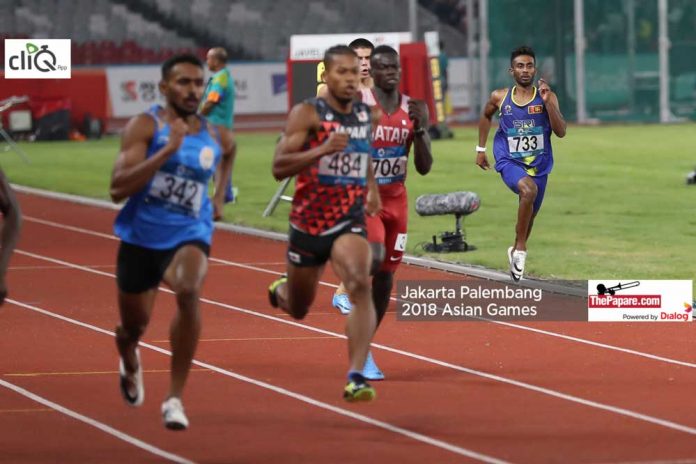International Association of Athletic Federations (IAAF), the controlling body of world athletics has announced a major overhaul in the qualification process for the world events which include the Olympics and the World Athletic Championships.
The IAAF announced the reforms to the qualification norms and methods for the upcoming international competitions which will include the 17th edition of the World Athletic Championship to be held in Doha, Qatar and will also be applicable for the 2020 Summer Olympics which will be held in Japan.
The new complex qualification system involves the ‘IAAF World Rankings’ and will be based on scoring points for individual events. This is a major change to the system where in the past the best performance of an athlete paved the way for qualification, provided the athlete had managed to achieve the standard set out by the IAAF. The new method will monitor the performance of the athletes continuously throughout the qualification period while the average of the Top 5 performance of the athlete will be taken into consideration for ranking purposes.
The heartening story behind Sri Lanka’s first YOG medal
Sri Lanka’s first youth medalist Parami and her coach..
This new system provides greater allowance for performances at major international competitions. Though the points achieved in national level events will be considered for rankings it will have minor significance with a high preference given to the performances at international events. Athletes will have to make sure to perform consistently throughout the qualification period as there will be point deductions for performances older than nine months from the end date of the qualification process. This does not include the wild card entries afforded to the countries who end up without a single qualified athlete in a given discipline.
To further clarify the new system, A team of three track and field athletes qualified for the 2016 Rio Olympics which consisted of Marathoners Anuradha Cooray, Geethani Rajasekara and Javelin thrower Sumedha Ranasinghe. In the Men’s Marathon, the qualification time was 2:19:00 while the Women’s qualification time was 2:45:00. Sri Lanka’s representative in the Men’s Marathon, Anuradha Indrajith Cooray achieved qualification for the Olympics running 2:13:47 at the London Marathon which was the new national record for the event, erasing S L B Rosa’s 40-year-old record. Geethani Rajasekara who became the first female to run the Marathon in the Olympics, achieved qualification clocking a time of 2:40.07 at the 2015 Hongkong Marathon, which was also the national record at the time. Sumedha Ranasinghe became the first Sri Lankan to participate in the Men’s Javelin throw when he went passed the Olympic qualification mark of 83.00m at the National trial held in Diyagama where he recorded a distance of 83.04m.
Stop talking Olympics! Focus on Asia first
So, another Asian Games has come to an end..
The Sri Lankan athletes for the Olympics attained qualification for the show piece event as they managed to achieve the required performance during the set time which was from the 1st of January to 11th July 2016 where the standards could be achieved at any IAAF approved outdoor meets for track and field events or at one of the IAAF Gold Label Marathons. But with the new system in place none of the Sri Lankan athletes would have made the cut as they only had one stand out performance which surpassed the Olympic qualification standard.
With the introduction of the new criteria, achieving qualification for world events has become increasingly challenging for Sri Lankan athletes. The local athletes will have to make sure they keep their performance at a very high standard consistently throughout the qualification period. They will also have to be granted opportunity to compete in IAAF acclaimed international competitions by either sending the athletes for competitions overseas or organizing international competitions domestically in order to maximize the opportunities of them being able to achieve qualification since the points that they would receive for domestic national competitions will be minimal and will not allow them to vie for qualification at the all-important world events.




















